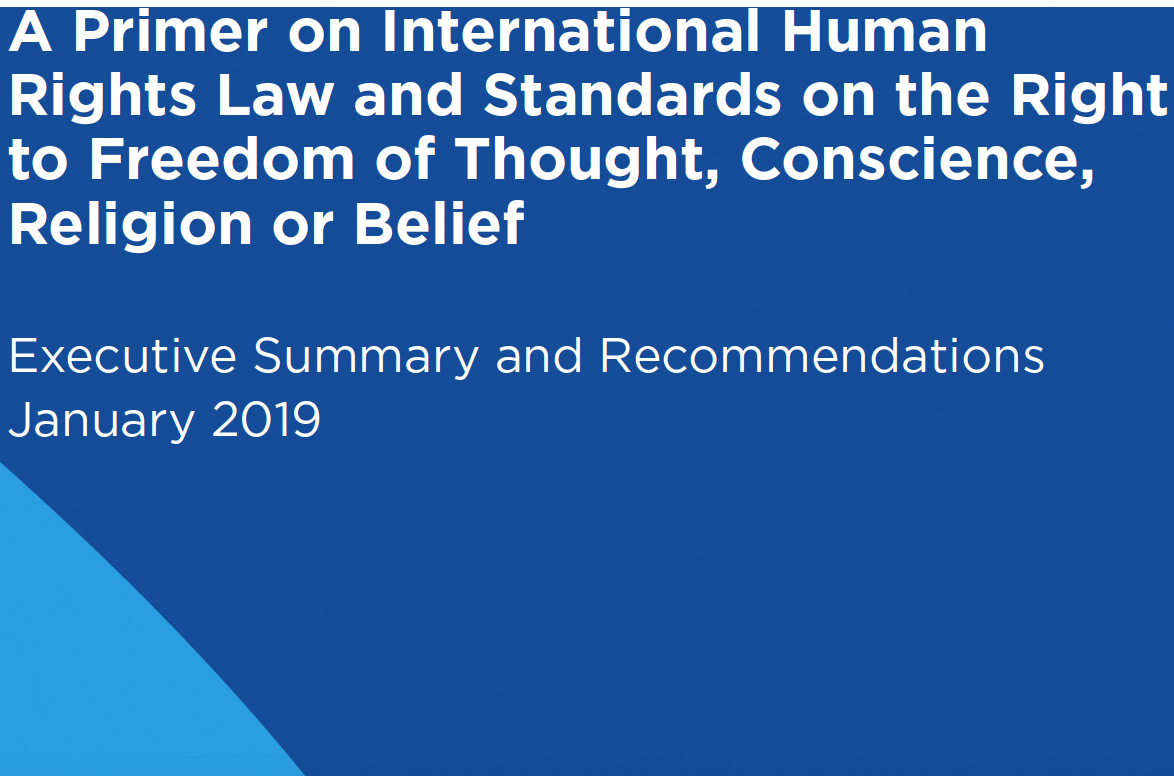The ICJ has issued “A primer on international human rights law and standards on the right to freedom of thought, conscience, religion or belief” in which the organization outlines and analyses international human rights law and standards relevant to the right to freedom of religion or belief.
The primer is part of a series of ICJ publications on this theme.
The right to freedom of thought, conscience, religion or belief is a wide-ranging right encompassing a large number of distinct, and yet interrelated entitlements.
International human rights law provides for and guarantees the right to freedom of thought, conscience, religion or belief broadly, encompassing the right to freedom of thought and personal convictions in all matters, and protecting the profession and practice of different kinds of beliefs, whether theistic, non-theistic or atheistic, and the freedom not to disclose one’s religion or belief.
International law also guarantees and protects the right not to have a religious confession.
Among other things, the Primer describes in detail certain key aspects of the right to freedom of religion or belief, including the freedom to adopt, change or renounce a religion or belief; the right to manifest a religion or belief; as well as the relationship between the right to freedom of religion or belief and other human rights, including the principle of non-discrimination, and the right to freedom of expression.
Finally, the primer concludes with a number of recommendations addressed to States in light of its analysis of international human rights law and standards on the right to freedom of religion or belief.
Download
To download the Executive Summary in English, click here.
To download the full primer in English, click here.
To download the full primer in Burmese, click here.

